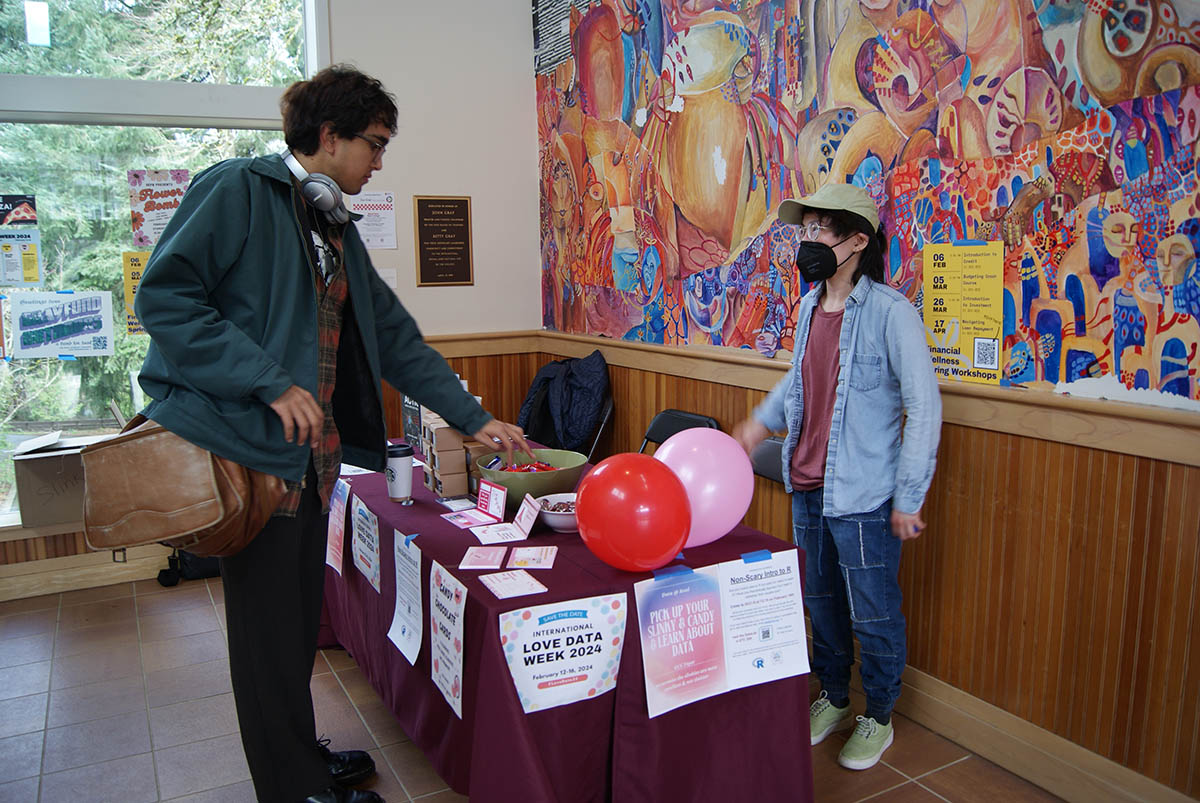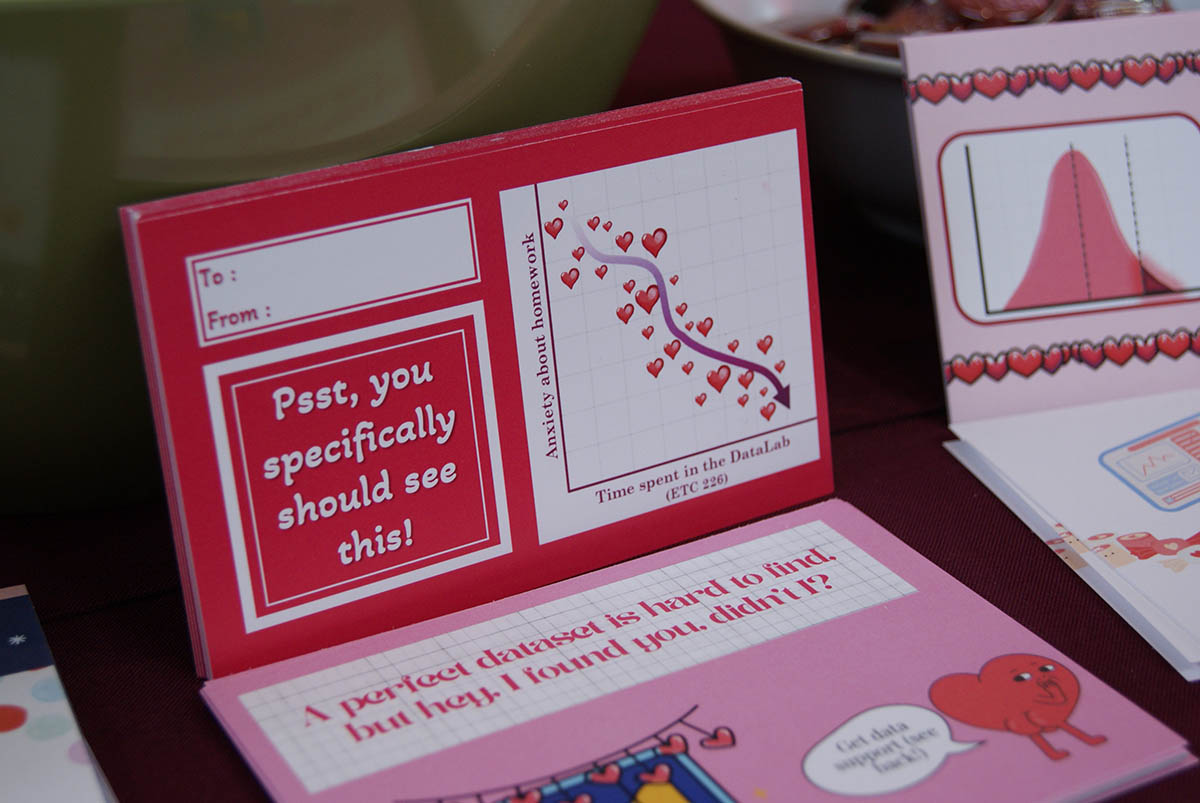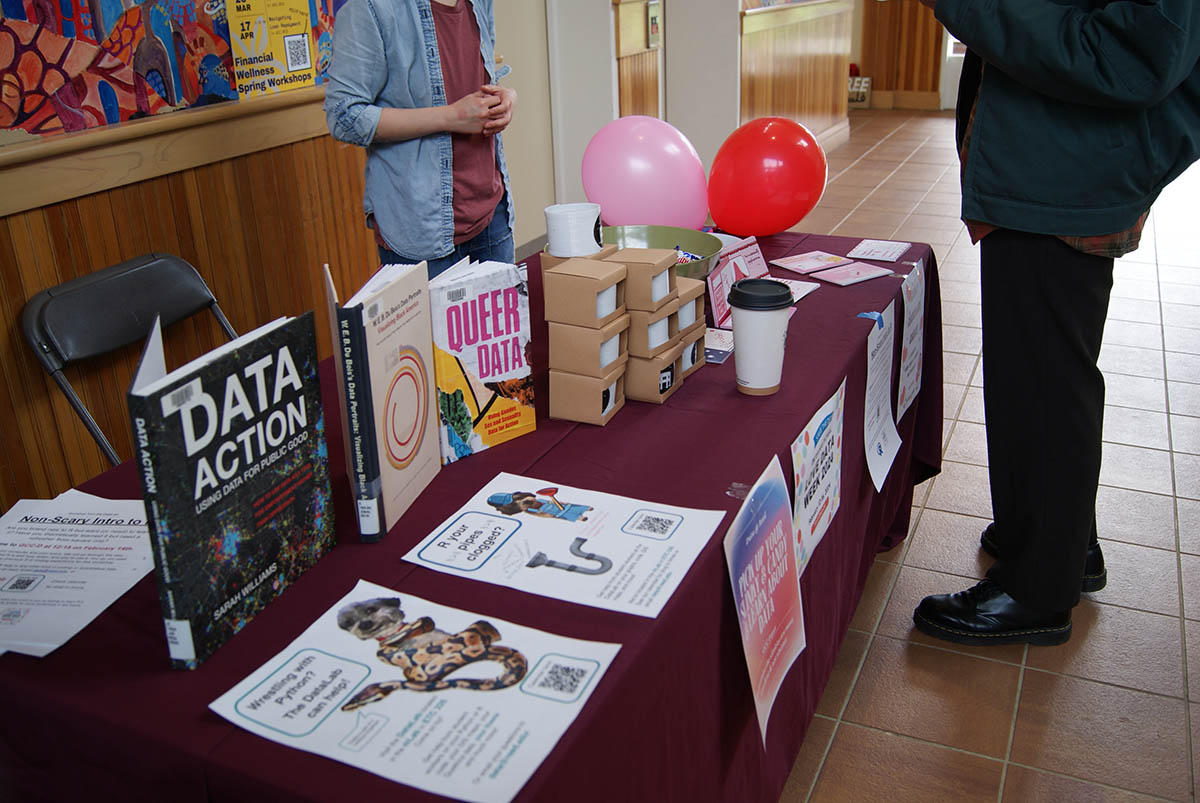
Jess Yao Joins Reed as Data and Digital Scholarship Librarian
By Declan Bradley ’26
March 28, 2024
Jess Yao doesn’t worry about being invisible. “If the system is running smoothly,” says Reed’s new data and digital scholarship librarian, “there's no hiccups, and you don't really see the work behind it.” Yet while Yao’s work may be hard to spot, its impact is anything but. On Valentine’s Day, students who might normally have been reluctant to engage with statistics and computer science, two of Yao’s specialties, giggled over the “data valentines” strategically distributed outside Commons. “I census going on a date together,” said one pink slip. “I’m 95% confident I love you,” read another, prompting a laugh from one student who feared it might not have the intended amorous effect.
Yao’s role runs the gamut, from developing and maintaining the Reed Library’s collections—what they refer to as the “backbone” of research—to working directly with students and faculty. When Yao can be found at their desk, it's most likely with a cup of tea or black coffee, but they’re just as likely to be found at a lectern — having co-taught five classes in the month of February.

The Reed Library first created the position of data librarian in 2013, but Yao is the first to hold the expanded position of data and digital scholarship librarian, which was amended in 2023 to include responsibility for the senior thesis submission process. As a result, Yao is responsible not only for teaching and for consulting with faculty and students on data work, but also for stewarding each graduating cohort’s digital theses. Since Yao only began their role at Reed this year, said library director of research services Angie Beiriger, “the true impact of their work is yet to be seen.” Yet Beiriger expressed excitement about Yao’s ongoing work, especially their plans for community workshops centered on data ethics and representation.
Yao’s journey to Reed has been a long one. After studying classics and English as an undergraduate at the University of Toronto, Yao became interested in distant reading, a term coined by Stanford scholar Franco Moretti in 2011 to describe the application of big data techniques to text analysis in the humanities. The use of computer algorithms, Yao says, allows you to “see patterns that you can't see just by reading line by line.” From there they switched programs midway through a master’s degree in classics to a master’s of library and information science at the University of British Columbia, a program focused on social science methods. “I don't know if I identify with any field anymore,” Yao said thoughtfully, “I just consider myself a librarian.”

While Yao never envisioned themself as a teacher, education has become a key part of their career and their role at Reed. Before taking one of their first roles as a teaching assistant in classics, Yao said, they had never had the chance to study pedagogical theory. It was only after studying library instruction as a Master’s student that they began to see themself as a teacher. Now, they bring that passion and their skill with data to Reed’s Sociology and Environmental Studies classes, among others. Teaching information literacy, Yao said, is key, as is giving students the tools to access and navigate data in their research. Many sensitive datasets, such as those containing health data, may require applications for access, not to mention the ethical obligations placed on researchers to preserve privacy in their analyses. Collaborating with students and faculty on such applications and analyses is a key part of Yao’s work.
That passion for teaching has shaped Yao’s approach to emerging technologies such as generative AI, which have become increasingly common on college campuses. Their approach, Yao said, was always to engage with new technologies and teach best practices for using them, “rather than being scared.” Anxiety about tools like ChatGPT, they said, echoed similar concerns about the rise of Google, a pattern they don’t think “will ever go away.” But, they said, “it’s most important to understand,” teach, and learn how to engage with new tools rather than avoiding them.
Yao is optimistic about the power of data to democratize research. Emerging technologies, they said, always change “the broader conversation of how we do research.” The question is always one of access. Will new innovations make data and research accessible “outside greed,” or see them sealed behind paywalls? “Having those conversations themselves,” Yao said, “is really interesting. I don't have anything against peer-reviewed published articles,” they continued, “but just think about the diversity of outputs, and the different ways that you can share your findings and research.” Digital scholarship, they said, could put research into the hands of new audiences, and help readers engage with esoteric datasets.
Looking to the new year, Yao is excited to pursue further work in promoting equity and diversity in data at Reed, as well as teaching best practices for handling research data. They believe, for example, that training in research data management should be emphasized at the undergraduate level, rather than beginning in graduate school. “If you’re collecting data,” they said, “... what are you going to do with it? How are you going to store it? Where are you going to deposit it after your research? Who's going to be able to access that and build on that in the future?” Such questions, they said, are important for all students to consider, but especially vital for Reed students looking toward their senior theses.
No matter what the new year brings, they said with a smile, they’re glad to be at an institution where “Love Data Week” can bring out such enthusiasm. “It’s a very different culture,” they said, “and I loved how much the students engaged.”